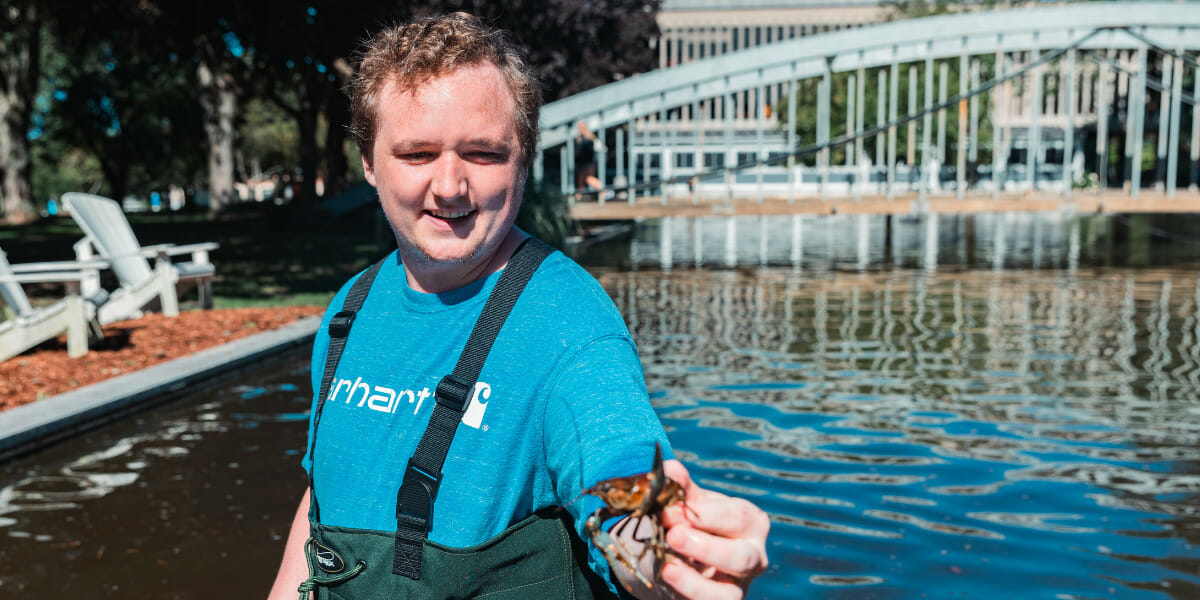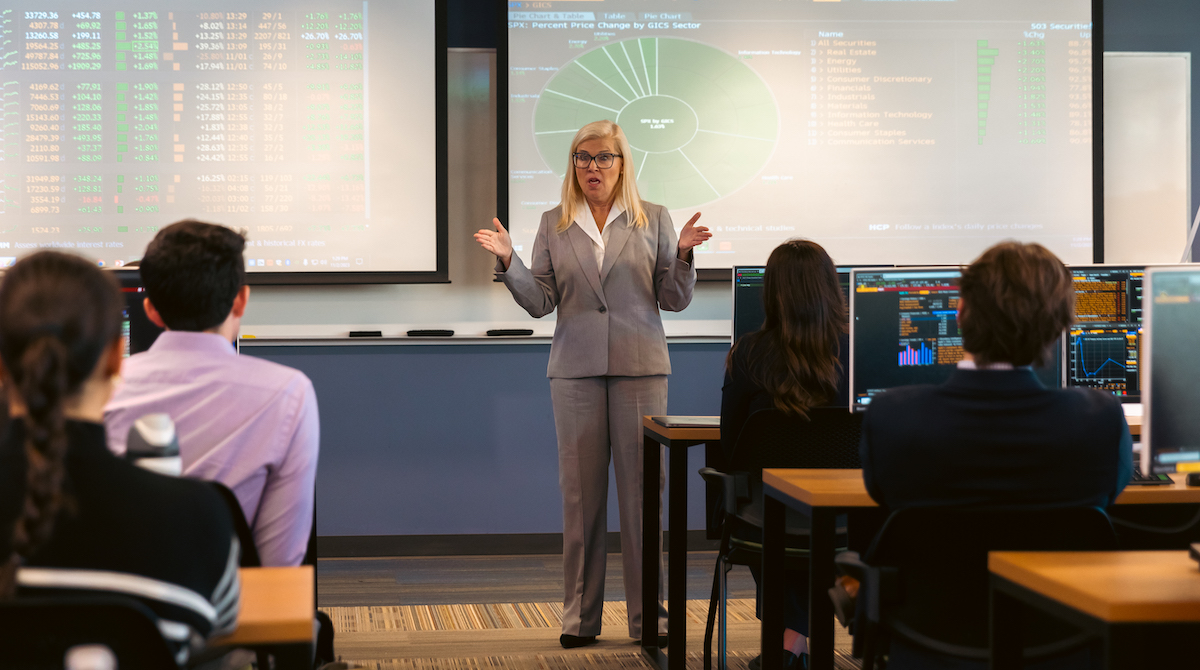It’s not recommended for Merrimack College students to take a dip in Mendel Pond – unless they’re hanging out with Associate Professor Bill McDowell.
On a recent early morning, McDowell and two of his undergraduate research students, Griffin McNulty ’24 and Jenna Dubrule ’25, were strapped up in their waders and combing the pond for crayfish and goldfish using a large seine.
They were in the pond as part of McDowell’s ecology lab, where students put into practice the mark and recapture method used by ecologists to estimate the total population of wildlife in a given area.
“Let’s say we mark 50 individual crayfish today and then next week, we catch 100 for the lab and 10 of them have a mark,” McDowell explained. “What mark and recapture assumes is that the percentage of individuals with marks on that second day is the same as the percentage of all the individuals in the pond that were marked. If 10 percent of the individuals on the second day had a mark, that means the 50 individuals that were marked on day one were 10 percent of the whole population. Therefore, the overall population in the pond would be 500 individuals.”
Last year, McDowell said his students estimated 3,000 crayfish were living in Mendel Pond.
“(The lab) was something I created in response to the pandemic” during the fall of 2020, he explained. “We couldn’t go off campus anymore, so I had to figure out how to do a full set of ecology labs on campus.”
McNulty and Dubrule assist McDowell in two of his START grant-funded research projects monitoring microplastics in local rivers and commercial bottled water.
“With the ecology labs, we have a lot of hands-on work, which is what I want to be doing in the future,” Dubrule said. “I want to be outside, collecting samples and analyzing them. This is really just a precursor to the rest of my career.”





